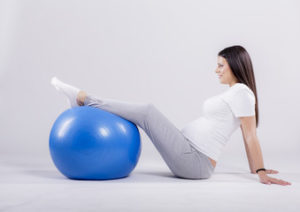It’s Almost Baby Season! What That Means for your Legs.
- Posted on: Feb 28 2018

Many vein specialists joke that we can blame varicose veins on both our parents and our children. Why? Because some studies suggest that our genetics are a primary factor in our risk for venous insufficiency. Furthermore, there are particular conditions of pregnancy that can cause or exacerbate the poor function of veins.
It isn’t just the increase in weight that may instigate or worsen varicose veins during pregnancy. The nine months of fetal growth ultimately sets a perfect storm for vein weakening. One mitigating factor in the development of varicose veins and even spider veins during pregnancy is hormones. An increase in progestin during pregnancy is necessary in order to facilitate the expansion of pelvic structure before and during childbirth. At the same time, the laxity that is created also makes it easier for blood to pool in the veins of the legs.
In addition to hormonal changes, pregnancy also brings about a proliferation of blood volume. A woman literally produces more blood in order to support her body as well as that of her unborn child. The more blood there is, the greater the pressure within veins. Add a few (or a few dozen) extra pounds to these factors and you can see how the risk of varicose veins only grows throughout pregnancy.
As frustrating as varicose veins can be, there is no need to rush to your vein specialist for immediate treatment. At Vena Health and Wellness, we offer strategies for patients of our Wexford, Beaver, Grove City, and Sewickley offices that revolve around lifestyle habits for a healthier pregnancy. These include walking often but also staying off your feet for too long. It is important to alternate between standing and sitting at least once per hour. Regular exercise such as walking and swimming, staying hydrated, and limiting salt intake are also beneficial.
Many women who develop varicose veins during pregnancy find that this problem diminishes as weight and hormones are restored to their pre-pregnancy norm. If treatment is needed, we are here to help. Call 412-741-0480 to schedule a visit with us.
Posted in: Varicose Veins, Vein Treatments
